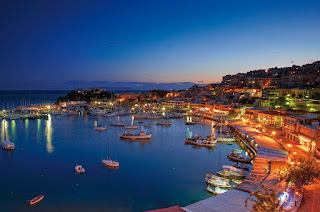Battle Between Inclusive Institutions and Extractive Institutions, Some Thoughts on "Why Nations Fail"
I am halfway through the book Why Nations Fail by Daron Acemoğlu. The author's claim essentially is and i am over simplifying it a bit here, for a state to last long it needs to depend on inclusive institutions. Yes it's true to a certain extent that inclusive states like the Greeks, the Venetians, the Dutch, later on the British followed by Americans all had dominance over the main trade routes of their era especially maritime trade which yielded massive profit. They also had some sort of dominance over the land via their colonies.
Even though they ruled the waves they usually were kind of knocked down on the land againist very extractive institutions which had well disciplined organised military. Greeks could hold hardly against the massive Persians thanks to 300 Spartans standing to last man on the choke point at Thermopylae and later on defending a narrow shore against a Persian landing. The Venetians also lived an ambivalent relationship with the Ottomans, trading at one point in time and defending its overseas colonies the next. Ottomans slowly engulfed Venetian possessions in the Mediterranean but invasion of Venice was far from reality. The Dutch did some great when they threw off the Spanish yoke wich was a strong land force after reconquering the Iberian peninsula. The Oranges were made to step aside by the English which had a more solid land base surrounded by sea and a strong navy. During this time France became the powerhouse in Europe later on passed the baton of the big land empires to Russia who within the 20th century found Britain replaced by a maritime empire with an immense land base that is United States of America. Now the inclusive institutions of the west seem to be at the lead but it wasn't always like that.
The Roman Empire, the Chinese Empire, the Ottoman Empire, the Mughals, The Spanish Empire, The Russian Empire with their extractive institutions did rule the world for a very long period even though the short brightness of the last 200 years proved otherwise.
Even though they ruled the waves they usually were kind of knocked down on the land againist very extractive institutions which had well disciplined organised military. Greeks could hold hardly against the massive Persians thanks to 300 Spartans standing to last man on the choke point at Thermopylae and later on defending a narrow shore against a Persian landing. The Venetians also lived an ambivalent relationship with the Ottomans, trading at one point in time and defending its overseas colonies the next. Ottomans slowly engulfed Venetian possessions in the Mediterranean but invasion of Venice was far from reality. The Dutch did some great when they threw off the Spanish yoke wich was a strong land force after reconquering the Iberian peninsula. The Oranges were made to step aside by the English which had a more solid land base surrounded by sea and a strong navy. During this time France became the powerhouse in Europe later on passed the baton of the big land empires to Russia who within the 20th century found Britain replaced by a maritime empire with an immense land base that is United States of America. Now the inclusive institutions of the west seem to be at the lead but it wasn't always like that.
The Roman Empire, the Chinese Empire, the Ottoman Empire, the Mughals, The Spanish Empire, The Russian Empire with their extractive institutions did rule the world for a very long period even though the short brightness of the last 200 years proved otherwise.












Comments
Post a Comment